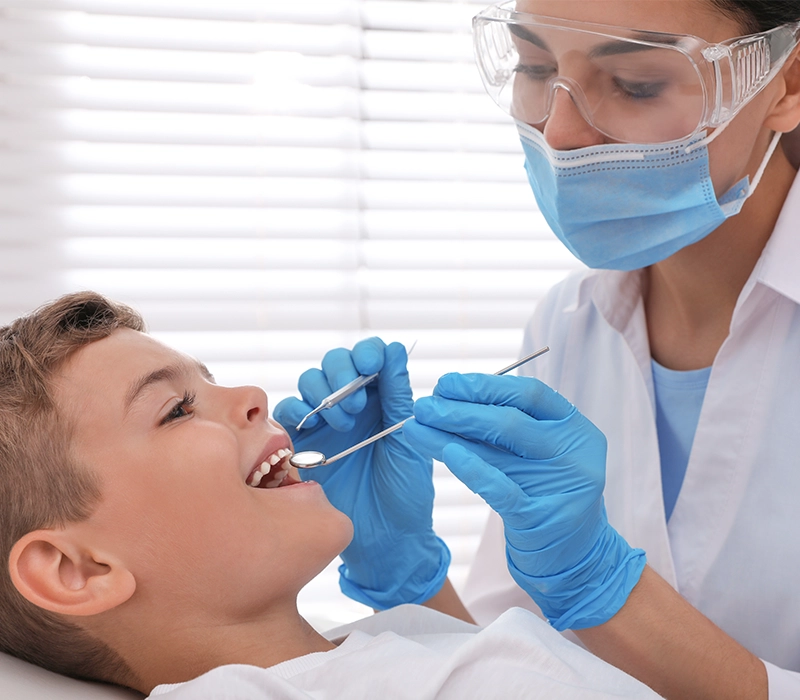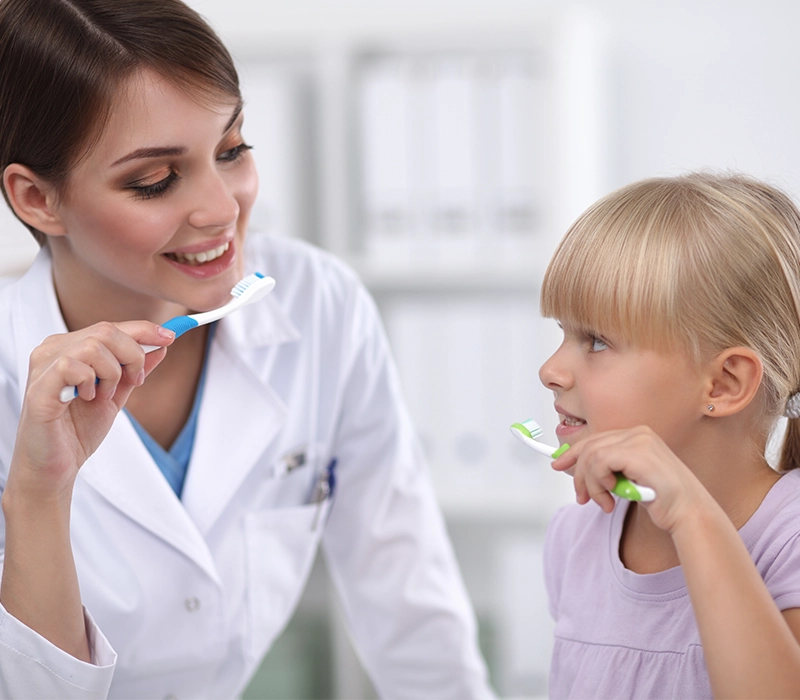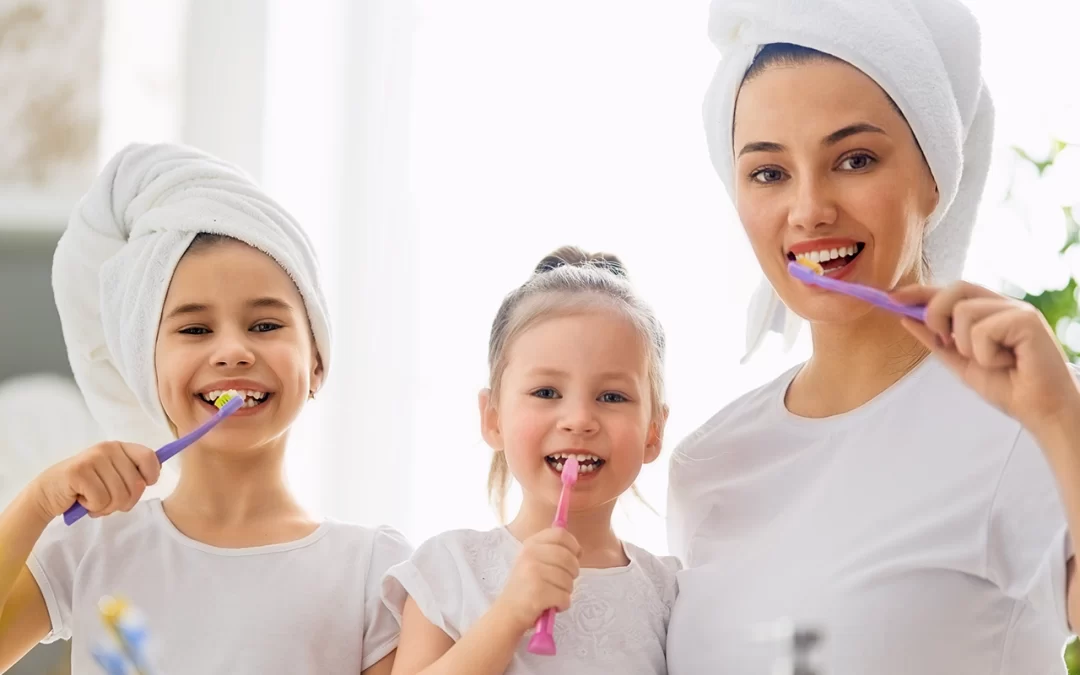- 1.7 million children aged 5-10 have experienced tooth decay in their baby teeth.
1.4 million children aged 9-13 have experienced tooth decay in their permanent teeth.
1.3 million children aged 6-14 have never had a dental visit.
These concerning statistics are testament to the fact that many parents struggle to establish good habits early on which will ensure their their kids enjoy dental care. In this blog post, we will provide tips for parents to make their kids’ dental care fun and engaging.
Start kids dental care early
Starting dental care early is vital to establishing good oral hygiene habits that will benefit your child’s health throughout their life. Starting early is a great investment with major rewards:
- Tooth decay and gum disease can be prevented: Even before your baby’s teeth emerge, bacteria accumulates in their mouth and causes problems. By cleaning their gums with a soft, damp cloth after feedings, you can help reduce the risk of infections and other issues.
Healthy habits get established: As your child grows and their teeth develop, they will learn to take care of their oral health if you make it a regular part of their routine. Starting early can help establish healthy habits that will last a lifetime.
Money gets saved: By preventing dental problems before they have a chance to develop, you can avoid costly treatments down the road.
Here are some tips for caring for an infant’s teeth:
- Clean their gums. As mentioned earlier, cleaning your baby’s gums with a soft, damp cloth after feedings can help reduce the risk of infections and other issues.
Brush their teeth. Once your child’s teeth start to emerge, use a soft-bristled toothbrush and a smear of fluoride toothpaste to clean them twice a day.
Avoid sugary drinks. Sugary drinks like fruit juice or soda can lead to tooth decay, so it’s best to limit them as much as possible, or avoid them altogether.
Create a fun kids dental care routine
Establishing a fun hygiene routine can make a big difference in getting kids excited about taking care of their teeth. Here are some tips to make dental care a fun and enjoyable activity for kids:- Make brushing and flossing a fun activity: Encourage your child by singing a song or playing a game while brushing or flossing. This can make the experience more enjoyable and help your child associate dental care with positive feelings.
Use music or games which teach good oral hygiene: Choose songs and games that your child loves and which teach how to brush and floss correctly.

- Establish a reward system: Motivate your child to take care of their teeth regularly by offering small rewards like stickers, healthy treats or fun activities for consistent dental care. This can helps your child establish good habits, and feel proud of their accomplishments.
Choose kid-friendly products
Using kid-friendly dental care products can make the experience more enjoyable for children. Here are some examples of kid-friendly dental care products to consider:
- Toothbrushes with fun designs: Toothbrushes come in all shapes and sizes, so find one with a fun design or favourite character that your child likes. This can help encourage them to brush their teeth regularly.
Flavoured toothpaste and floss: Some kids may not like the taste of traditional mint toothpaste or plain floss, so try out flavoured options that they might enjoy, like strawberry or watermelon. This can make dental care a more pleasant experience.
- Electric toothbrushes with fun characters: Electric toothbrushes can be a great option for kids who don’t like manual brushing. Some electric toothbrushes come with fun characters, music or even connectivity to smartphone brushing games to make the experience more enjoyable for kids.

Teach by example
Children often learn by watching the people around them. Parents can teach their children good dental care habits by setting the right example themselves. Here are some tips:
- Brush and floss in front of your kids: Let your child see you and other family members brushing and flossing. This can help them understand the importance of dental care and encourage them to do the same.
Make it a family activity: Set aside time each day for everyone in the family to brush and floss together. This can make dental care a fun shared experience that reinforces healthy habits for the whole family.
Make dental visits positive
Regular dental visits are an important part of maintaining good oral health. However, many kids feel anxious or scared about going to the dentist. Here are some tips to make dental visits more enjoyable:
- Prepare your child for the dentist: Talk to your child about what to expect during the dental visit, including what will happen and what tools the dentist will use. You can also read books or watch videos made especially for children to learn about going to the dentist.
Use positive language: Avoid using scary or negative language when talking about the dentist or dental procedures. Instead, use positive language to help your child feel more comfortable and confident.
Find a paediatric dentist: Look for a dentist who specialises in working with children and has experience creating a positive and welcoming environment for kids. This can make a big difference in how your child feels about going to the dentist.



